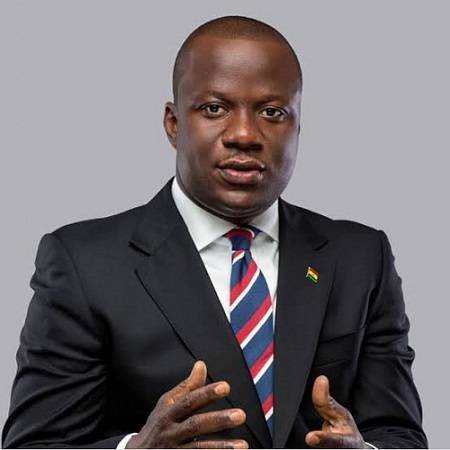The Minister of Lands and Natural Resources, Samuel Abdulai Jinapor, has called on world leaders and development partners to prioritise the implementation of commitments and supports aimed at mitigating the effects of climate change.
According to him, despite the many discussions and pledges of support to enable Ghana and other African countries deal with the impacts of climate change, little had been done in that regard.
He said the worsening effects of the menace, especially in developing countries, required that all global efforts were refocused on meeting the commitments and supporting activities designed to mitigate the consequences of climate change.
“What we need now is action and not talk. It is time for us all to walk the talk in relation to commitments and supports needed to mitigate the impact of climate change.
We’ve done enough talking. We need to pull the brakes and insist on meeting the commitments that will enable Ghana and other developing countries to deal with the effects of climate change,” Mr Jinapor, who is the co-chair of the Forest and Climate Leaders’ Partnership (FCLP), stated.
The Minister was speaking to Ghanaian Times in Accra yesterday ahead of his participation in the Africa Climate Summit scheduled for September 4 to 6 in Nairobi, Kenya.
The call by the Minister comes off at the back of the failure of developed nations to honour their commitments of making available US$100 billion annually to help developing countries reduce emissions and manage the impacts of climate change.
Meanwhile, the African Development Bank (AfDB) estimated that Africa will need US$3 trillion in mitigation and adaptation by 2030 to enable her implement nationally determined contributions as part of measures to curb climate change.
The Summit will be held alongside the Africa Climate Week organised by the United Nations Framework Convention on Climate Change (UNFCCC) in collaboration with the UN Development Programme (UNDP), UN Environment Programme (UNEP), and the World Bank Group.
It is one of the four Regional Climate Weeks which will be held this year to build momentum ahead of the UN Climate Change Conference of Parties (COP28) in Dubai.
President Nana Dankwa Akufo-Addo is expected to address the Summit while Mr Jinapor will participate in a ministerial event which features John Kerry, United States Special Envoy for Climate.
Mr Jinapor explained that the calls for urgent support to Ghana and other African countries to help mitigate climate change effects were premised on the fact that developing countries did not participate in the industrial revolution that resulted in climate change.
Also, he said developing nations contributed only about four per cent to Greenhouse Gas emissions which build up in the atmosphere and warm the climate, leading to many other changes in the atmosphere, on land, and in the oceans.
Despite the little contribution to the causes of climate change, the Minister noted that developing countries have been exposed to the harmful effects of the phenomenon, impacting negatively on agriculture and other developmental plans.
“Africa is the least of the contributors to this phenomenon, responsible for less than four percent of the global volume of carbon emissions. However, we suffer the most because our economies are peculiarly susceptible to the effects of climate change, and our capacity to withstand its shocks is weak,” he said.
Describing it as “historical injustice”, he reiterated the need for supports to developing countries to enable their efforts in addressing climate change.
In the meantime, Mr Jinapor said the government was currently undertaking various programmes and initiatives, including reducing emissions from forest degradation and deforestation, sustainable management of forests and the conservation and enhancement of forest carbon stocks also known as REDD+ and Green Ghana Day which promotes tree planting through afforestation and reforestation to enhance Ghana’s resistance to climate change.
He stated that the summit would provide the country the platform for further deliberations on viable strategies and workable approaches to addressing emissions from degraded lands towards the achievement of Ghana’s nationally determined contributions.
The Minister urged African leaders to take advantage of the Summit to highlight their climate change mitigation and adaptation strategies to attract the needed funding to help address pressing climate, economic and sustainable development challenges across the continent.
BY CLAUDE NYARKO ADAMS

